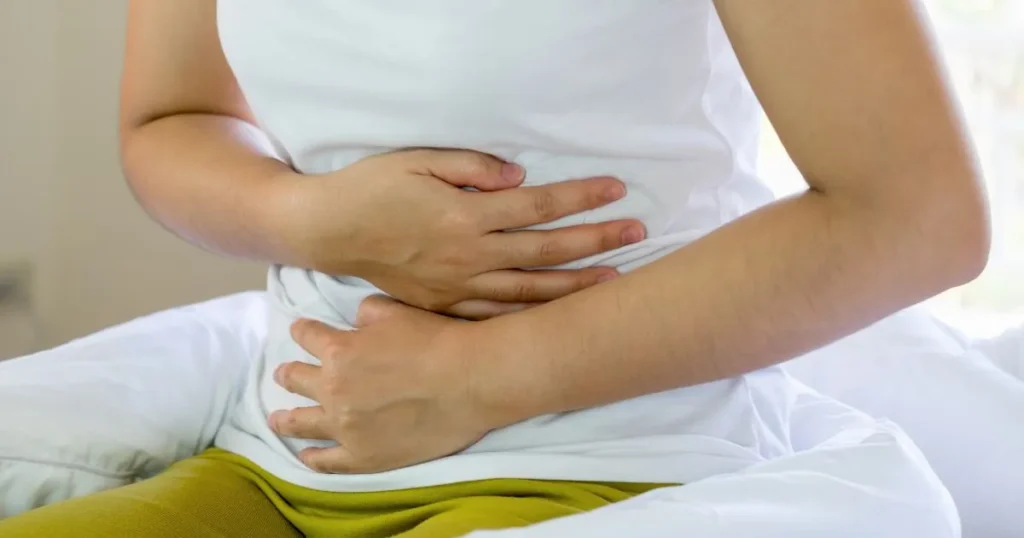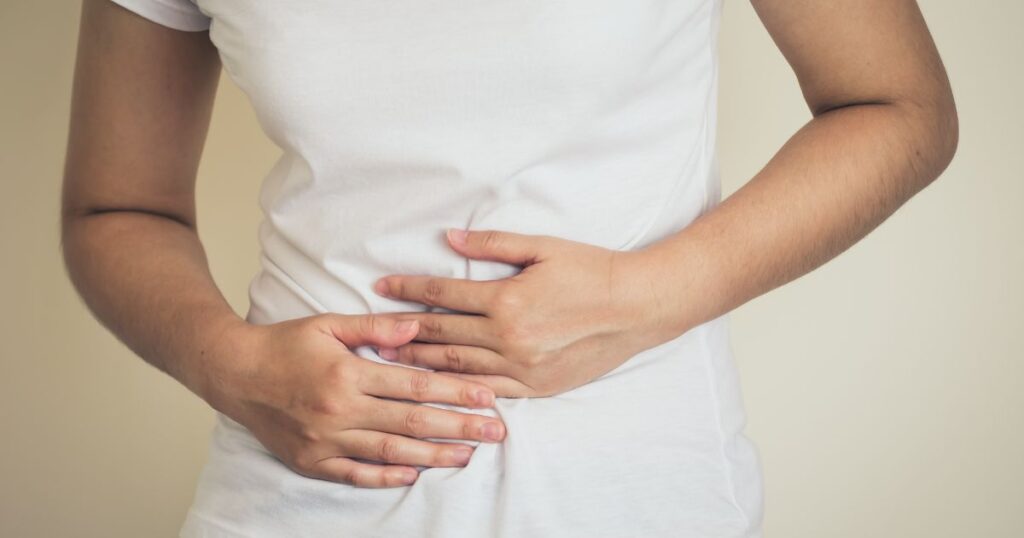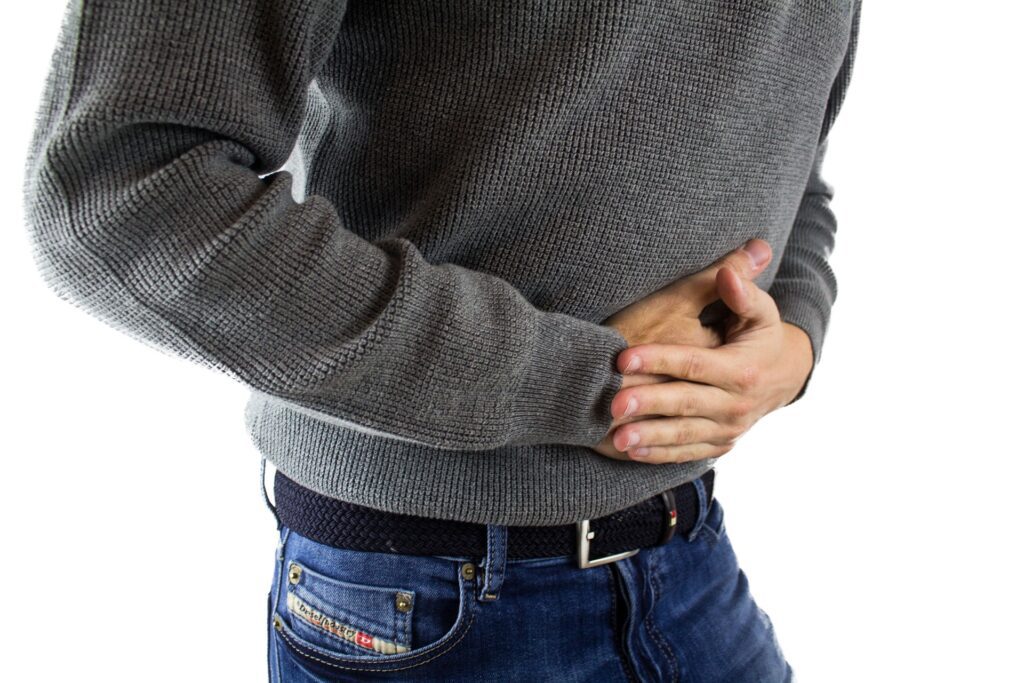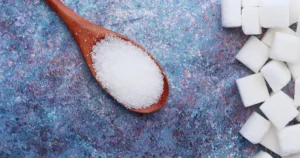How to Remove Gas from Stomach Instantly?
Are you tired of dealing with the discomfort of excessive gas in your stomach? The feeling of bloating, the awkwardness of uncontrollable burps, and the persistent abdominal discomfort can truly put a damper on your day. But worry no more! In this comprehensive blog, we will dive deep into the world of natural home remedies that can help you remove gas from your stomach instantly.
Gas in the stomach is a common digestive issue that can be caused by a variety of factors such as poor eating habits, indigestion, certain foods, or even stress. While occasional gas is normal, persistent or excessive gas can be bothersome and impact your overall well-being. Fortunately, there are simple and effective remedies you can try right at home to find relief and improve your digestive health.
Within this blog, you will find a treasure trove of practical tips, tricks, and techniques to tackle gas-related woes. From herbal teas to abdominal massages, from yoga poses to probiotic-rich foods, we’ve got you covered. We will explore each remedy in detail, explaining the science behind its effectiveness and providing step-by-step instructions for implementation.
So, say goodbye to the discomfort and embarrassment caused by gas, and say hello to a happier and healthier digestive system. Get ready to discover how to remove gas from your stomach instantly using natural home remedies. Let’s dive in and embark on a journey towards improved digestive health together.

Top Causes of Gastric Problems
Gastric problems, such as gas, bloating, indigestion, and stomach discomfort, can be both uncomfortable and disruptive to our daily lives. Understanding the causes of these issues is crucial for effectively managing and preventing them. Here are some of the top causes of gastric problems:

- Poor Eating Habits: One of the primary culprits behind gastric problems is poor eating habits. Eating too quickly, overeating, or consuming large meals can put excessive strain on the digestive system, leading to gas and bloating. Additionally, eating a diet high in processed foods, fatty or greasy foods, and spicy foods can also trigger gastric issues.
- Food Intolerances and Sensitivities: Many individuals have food intolerances or sensitivities that can cause gastric problems. Common culprits include lactose intolerance, gluten sensitivity, and fructose malabsorption. These conditions can lead to bloating, gas, abdominal pain, and diarrhea when trigger foods are consumed.
- Digestive Disorders: Certain digestive disorders can contribute to gastric problems. Conditions such as gastroesophageal reflux disease (GERD), irritable bowel syndrome (IBS), and inflammatory bowel disease (IBD) can all cause symptoms like acid reflux, bloating, and stomach discomfort.
- Swallowing Air: When we eat or drink, we often swallow air along with the food or beverage. This can happen more frequently if we eat too quickly, chew gum, drink carbonated beverages, or smoke. The trapped air can accumulate in the digestive system, leading to bloating and gas.
- Stress and Anxiety: The mind and body are intricately connected, and stress and anxiety can have a significant impact on our digestive health. When we’re stressed or anxious, our bodies produce more stress hormones, which can interfere with digestion and lead to gastric problems.
- Medications: Certain medications can have gastrointestinal side effects, including gas and bloating. Antibiotics, nonsteroidal anti-inflammatory drugs (NSAIDs), and some antidepressants are known to disrupt the normal balance of gut bacteria or irritate the stomach lining.
- Lack of Physical Activity: A sedentary lifestyle can contribute to gastric problems. Regular exercise helps stimulate digestion and promotes healthy bowel movements. Without sufficient physical activity, the digestive system may become sluggish, leading to issues like constipation and bloating.
- Carbonated Beverages: Carbonated beverages, such as soda and sparkling water, can introduce excess gas into the digestive system. The carbonation can cause bloating and discomfort, especially in those who are more susceptible to gas-related issues.
- Smoking: Smoking not only poses numerous health risks but can also contribute to gastric problems. Inhaling cigarette smoke can introduce air into the digestive system, leading to bloating and gas. Smoking can also weaken the muscles that control the opening between the esophagus and stomach, causing acid reflux.
- Alcohol Consumption: Excessive alcohol consumption can irritate the lining of the stomach and intestines, leading to inflammation and gastric issues. Alcohol can also slow down digestion, causing food to remain in the stomach for longer periods, which can result in bloating and discomfort.
What are the Symptoms of Gastric Problems?
Gastric problems can manifest in various ways, causing discomfort and affecting our overall well-being. It is important to recognize the symptoms of these issues in order to seek appropriate treatment and management. Here are some common symptoms of gastric problems:

- Abdominal Pain: One of the primary symptoms of gastric problems is abdominal pain or discomfort. This pain may range from mild to severe and can be experienced as cramping, aching, or sharp pain. The location of the pain may vary, depending on the underlying cause of the gastric problem.
- Bloating: Feeling bloated or full in the abdomen is a common symptom of gastric problems. Bloating is often characterized by a sensation of tightness or swelling in the stomach area. It may be accompanied by visible distention of the abdomen.
- Gas: Excessive gas or flatulence is another symptom of gastric problems. This can lead to the passage of gas through belching or flatulence, causing embarrassment and discomfort.
- Acid Reflux: Acid reflux occurs when stomach acid flows back into the esophagus, resulting in a burning sensation in the chest, commonly known as heartburn. It may also be accompanied by a sour taste in the mouth.
- Nausea and Vomiting: Gastric problems can cause feelings of nausea, which may sometimes progress to vomiting. This can be particularly common in cases of indigestion or gastroenteritis.
- Changes in Bowel Movements: Gastric problems can affect bowel movements, leading to symptoms such as diarrhea or constipation. Diarrhea may be characterized by loose, watery stools, while constipation may result in difficulty passing stools or infrequent bowel movements.
- Loss of Appetite: Many individuals with gastric problems experience a loss of appetite. They may feel full quickly or have a reduced desire to eat due to feelings of discomfort or bloating.
- Weight Loss: Unintentional weight loss may occur in some cases of chronic gastric problems. This can be a result of reduced appetite, difficulty in absorbing nutrients, or increased metabolism due to inflammation or other underlying factors.
- Fatigue: Chronic gastric problems can lead to fatigue or a general feeling of low energy. This may be due to the body’s increased effort in dealing with digestive issues or the impact of nutrient deficiencies on overall energy levels.
- Anxiety and Depression: The discomfort and disruption caused by gastric problems can also affect mental health. Many individuals experience heightened levels of anxiety and depression as a result of chronic symptoms and the impact on daily life.
How to Prevent from Gastric Problem?
Prevention is key when it comes to managing gastric problems and maintaining a healthy digestive system. By adopting a few simple lifestyle changes and following good dietary habits, you can reduce the risk of developing gastric issues. Here are some effective ways to prevent gastric problems:

- Maintain a Healthy Diet: Follow a balanced and nutritious diet to promote good digestive health. Include fiber-rich foods like fruits, vegetables, whole grains, and legumes to support regular bowel movements. Avoid excessive consumption of fatty, greasy, and spicy foods that can trigger gastric problems.It will help to remove gas from stomach.
- Eat Smaller, More Frequent Meals: Instead of eating large meals, opt for smaller portions spread throughout the day. This helps prevent overloading the digestive system and can reduce the occurrence of bloating and discomfort.Smaller meals helps to remove gas from stomach.
- Chew Food Thoroughly: Take the time to chew your food properly and thoroughly before swallowing. This aids digestion by breaking down the food into smaller particles and allows the digestive enzymes in your saliva to begin the digestion process.
- Stay Hydrated: Drink an adequate amount of water throughout the day to maintain proper hydration. Sufficient hydration supports healthy digestion and helps prevent constipation, a common cause of gastric issues. Aim to drink at least eight glasses of water per day.
- Limit Carbonated and Sugary Drinks: Carbonated beverages and sugary drinks can contribute to gas and bloating. Limit your intake of these beverages and opt for water, herbal teas, or natural fruit-infused waters instead.
- Manage Stress: Stress can adversely affect digestion and contribute to gastric problems. Practice stress management techniques such as deep breathing exercises, meditation, yoga, or engaging in hobbies to reduce stress levels and promote a healthy digestive system.
- Exercise Regularly: Regular physical activity helps stimulate digestion and promotes overall gastrointestinal health. Aim for at least 30 minutes of moderate exercise, such as brisk walking, cycling, or swimming, on most days of the week.
- Avoid Smoking and Excessive Alcohol Consumption: Smoking and excessive alcohol consumption can irritate the lining of the stomach and contribute to gastric problems. Quit smoking and limit alcohol intake to promote a healthy digestive system.
- Identify Food Triggers: Pay attention to foods that may trigger gastric problems for you individually. Common culprits include spicy foods, fatty foods, dairy products, and carbonated beverages. Keep a food diary to track your symptoms and identify potential triggers.
- Get Adequate Sleep: Sufficient sleep is essential for overall health, including proper digestion. Aim for 7-8 hours of quality sleep each night to allow your body to rest and recharge.
How to Remove Gas from Stomach Instantly: 20 Best Home Remedies
Are you ready to learn about the best home remedies for relieving stomach gas? Here are 22 effective solutions to help you combat bloating and discomfort:
1. Peppermint Tea: A Soothing Elixir
Enjoy a warm cup of peppermint tea to soothe your stomach and relieve gas. The natural compounds in peppermint help relax the muscles of your gastrointestinal tract, easing the passage of gas.It will help to remove gas from stomach.
2. Ginger: Nature’s Digestive Aid
Ginger is known for its digestive properties and can provide instant remove gas from stomach . You can chew on a small piece of fresh ginger or sip on ginger tea to alleviate bloating.
3. Chamomile Tea: Calm and Comfort
Chamomile tea not only helps you relax but also aids in remove gas from stomach . Sip on a cup of chamomile tea after a meal to promote better digestion and alleviate discomfort.
4. Fennel Seeds: The Natural Carminative
Fennel seeds are widely used as a natural remedy for remove gas from stomach. Chew on a teaspoon of fennel seeds after meals or brew fennel tea to experience their carminative properties.
5. Activated Charcoal: Absorbing Gas
Activated charcoal tablets or capsules can help absorb excess gas in your stomach and provide quick relief from bloating. Consult your healthcare professional before using this remedy.
You may also read..How do You Stop Indigestion? 10 Best Home Remedies
6 Best Foods that keep GERD at bay
6. Apple Cider Vinegar: Balancing Your Digestion
Mix a tablespoon of apple cider vinegar in a glass of warm water and drink it before a meal to improve digestion and prevent gas formation.This will help to remove gas from stomach.
7. Baking Soda: Neutralizing Acid and Gas
A simple solution of baking soda and water can help neutralize stomach acid and remove gas from stomach. Mix half a teaspoon of baking soda in a glass of water and drink it for instant relief.
8. Cumin Seeds: Traditional Remedy for Gas
Cumin seeds have been used for centuries to treat digestive issues, including gas and bloating. Chew on a teaspoon of cumin seeds or boil them in water to make a healing cumin tea.It will also help to remove gas from stomach.
9. Caraway Seeds: Reducing Flatulence
Caraway seeds contain essential oils that aid in digestion and remove gas from stomach. Chew on a small amount of caraway seeds after meals to prevent excessive gas formation.
10. Garlic: Nature’s Antibacterial
Garlic not only adds flavor to your meals but also possesses antibacterial properties that aid in digestion and remove gas from stomach. Include garlic in your cooking or take garlic supplements for relief.
11. Warm Water: Hydration and Relaxation
Drinking warm water throughout the day can help relax your digestive system and alleviate gas. Stay hydrated to promote healthy digestion and remove gas from stomach and eliminates bloating.
12. Lemon Water: Alkalizing and Refreshing
Squeeze fresh lemon juice into a glass of warm water and drink it in the morning on an empty stomach. Lemon water can help alkalize your body, aid digestion, and remove gas from stomach.
13. Aloe Vera Juice: Soothing and Healing
Aloe vera juice has soothing properties that can help reduce inflammation in the digestive tract and alleviate gas. Drink a small amount of aloe vera juice for relief.It wil help to remove gas from stomach
14. Papaya: Enzyme Powerhouse
Papaya contains an enzyme called papain, which aids in digestion and remove gas from stomach. Enjoy a serving of fresh papaya or take papaya enzyme supplements to relieve gas.
15. Probiotics: Balancing Gut Health
Probiotics, such as yogurt and fermented foods, help maintain a healthy balance of gut bacteria. Consuming probiotic-rich foods can aid digestion and remove gas from stomach.
16. Exercise: Get Moving!
Physical activity, such as walking or light exercises, can help stimulate digestion and remove gas from stomach. Incorporate regular exercise into your routine to keep your digestive system healthy.
17. Peppermint Essential Oil: Aromatherapy for Digestion
Inhaling peppermint essential oil or applying it topically to your abdomen can remove gas from stomach and help to reduce bloating. Dilute the oil before use and consult a healthcare professional if needed.
18. Cinnamon: Spicing Up Digestion
Cinnamon possesses carminative properties that can alleviate gas and aid digestion. Add a pinch of cinnamon to your meals or brew cinnamon tea to remove gas from stomach.
19. Asafoetida: Traditional Ayurvedic Remedy
Asafoetida, also known as hing, is a pungent spice used in Ayurvedic medicine to remove gas from stomach. Add a small amount of asafoetida to your cooking or dissolve it in warm water and drink it.
20. Stay Mindful: Eat Slowly and Chew Thoroughly
Eating slowly and chewing your food thoroughly can prevent swallowing excessive air, reducing the likelihood of gas. Stay mindful during meals to promote healthy digestion.This will help to remove gas from stomach.
When to See a Doctor for Gastric Problems
While many cases of gastric problems can be managed effectively with lifestyle changes and home remedies, there are situations where it is important to seek medical attention. Here are some indications of when to see a doctor for gastric problems:
- Severe or Prolonged Symptoms: If you experience severe or persistent symptoms such as intense abdominal pain, persistent vomiting, significant weight loss, or blood in your stools, it is important to consult a doctor. These symptoms could indicate a more serious underlying condition that requires medical attention.
- Frequent Recurrence: If you frequently experience gastric problems despite making lifestyle changes and home remedies, it may be necessary to see a doctor. They can help identify the underlying cause and provide targeted treatment options to manage your symptoms effectively.
- Impact on Daily Life: If your gastric problems significantly impact your daily life, causing disruption to your activities, work, or personal relationships, it is advisable to seek medical advice. A doctor can assess the situation, provide guidance, and recommend appropriate interventions to alleviate your symptoms.
- Pre-existing Health Conditions: If you have pre-existing health conditions such as diabetes, gastrointestinal disorders, or immune system disorders, it is important to consult with a doctor regarding your gastric problems. These conditions can complicate your digestive health and require specialized management.
- Concern for Digestive Disorders: If you suspect you may have a digestive disorder, such as gastroesophageal reflux disease (GERD), irritable bowel syndrome (IBS), or inflammatory bowel disease (IBD), it is recommended to see a doctor. They can conduct diagnostic tests, perform a thorough evaluation, and provide a proper diagnosis and treatment plan.
- Unexplained Symptoms: If you experience unexplained symptoms that cannot be attributed to dietary or lifestyle factors, it is important to seek medical attention. These symptoms may include persistent nausea, unexplained weight loss, chronic fatigue, or changes in bowel habits.
- Personalized Advice: Consulting a doctor can provide you with personalized advice and guidance tailored to your specific needs and medical history. They can help identify any potential risk factors or interactions with medications you may be taking and suggest appropriate treatment options.
Conclusion
Say goodbye to the discomfort and bloating caused by stomach gas with these 20 best home remedies. From sipping on peppermint tea to incorporating probiotic-rich foods into your diet, these natural solutions can provide instant relief and promote better digestion. Remember to stay mindful of your eating habits, drink plenty of water, and engage in regular physical activity to keep your digestive system healthy. Give these remedies a try and enjoy a gas-free
DISCLAIMER: The information provided in this article is for educational purposes only. The content is based on general knowledge and research . It is not intended to be a substitute for professional medical advice, diagnosis, or treatment. Always seek the advice of your physician or other qualified healthcare provider with any questions you may have regarding a medical condition.
Read more..10 Best Home Remedies for Vomiting in Children
20 Natural signs your body is too acidic
FAQs
How do you get immediate relief from gas?
To get immediate relief from gas, try lying on your left side or taking a short walk to help stimulate digestion and release trapped gas. Additionally, sipping on warm ginger tea can help soothe the stomach and alleviate gas discomfort.
What is the best way to remove gas from stomach?
The best way to remove gas from the stomach is to try natural remedies such as drinking peppermint tea, taking a walk to aid digestion, practicing deep breathing exercises, and avoiding foods that can contribute to gas formation, such as carbonated drinks and certain vegetables.
How can I reduce gas in 5 minutes?
What can I drink to relieve gas?
To relieve gas, you can try drinking peppermint tea or ginger tea, both of which have natural properties that can help alleviate gas and promote better digestion.
Does drinking warm water reduce gas?
Drinking warm water can help relax the muscles of the gastrointestinal tract and promote better digestion, which in turn may reduce gas and bloating. However, individual responses may vary, so it's important to listen to your body and find what works best for you.




